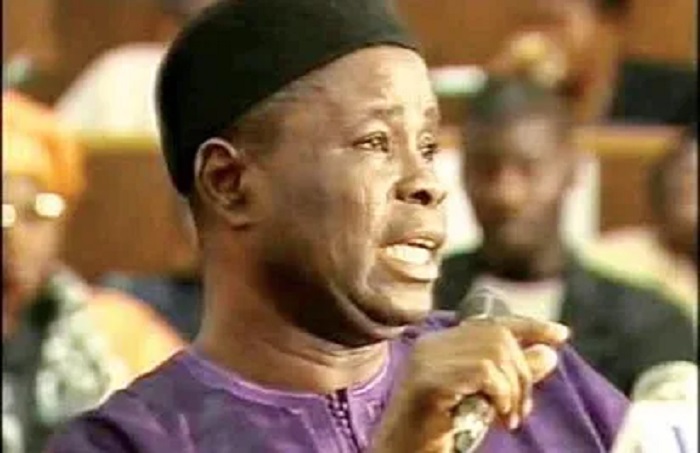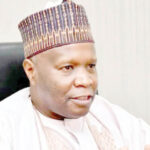First, I send my condolences to the family of Major-General Abdulkarim Adisa, who died in London on February 24. Badly hurt in a road crash, the one-time Works and Housing Minister was flown to London for life-saving medical intervention, but it was too late. May his soul find peace.
As a person, I did not like General Adisa. This is a man that served the nation as a military administrator.
- Family members of murdered ISIS fighters repatriated to Abuja
- PODCAST: IDP Camps: A Ticking Time Bomb
He further served as a minister before his own boss put him to the sword as a coup plotter in one of the most sordid chapters of our political life. Attempting to rehabilitate himself, he then devoted the remaining of his political and personal relevance to being a very religious man: he worshipped Ibrahim Badamasi Babangida (IBB). That was his other boss who had ruled Nigeria between 1985 and 1993, with heinous manipulation and to disastrous consequences.
General Adisa believed that nobody was worthy of Nigeria except IBB, and he stumbled to the head of the nefarious Project 2007, the grand schema designed to achieve that objective. He was never humble enough to say that IBB would right his wrongs, because the IBB camp admits of no wrong on the part of the god they worship. Every time Adisa looked into Nigeria’s future, he saw no better than the very worst of its tragic past.
London is also a significant part of Nigeria’s past. As the nation’s former colonial master, the United Kingdom has always remained close to Nigeria’s realities. Nigeria became an independent nation 45 years ago, but that was only in formal political terms. Psychologically, we never achieved independence, and the choice of London as our exalted destination for dying is proof of that. Last week, the man who offered Nigeria’s grievous past as its future proved a certain consistency in his philosophy: he returned to Nigeria’s colonial past to die. It is very little surprise that Nigeria of the present, which he helped to trample upon, was not good enough to keep him alive.
I do not mean to offer the impression that General Adisa’s case is unique. Suddenly-rich former and present Nigerian politicians appear in London every single day of the week. None of them ever takes a vacation anywhere in Nigeria; none of them likes to face a medical check-up or emergency in a Nigerian hospital; none of them likes to patronize a Nigerian business. Both those who stole money and those who had money stolen from them meet on the pavements and hotel lobbies and parks and shopping malls of London. When you are a ‘big man’ in Nigeria, it becomes insulting to shop in Nigeria; after all, someone might ask if you are whom he thinks you are. There can be no good public toilets in Nigeria because Nigerian government officials look down on anything ‘public.’
And so, to England we go to rest, to recreate—or in the new Nigerian parlance, to reposition—and then return to Nigeria, the scene of the crime. British Airways and Virgin Atlantic understand how vital their flights into Nigerian airports are, but we are not ashamed that we lack a national airline. The top shops on Oxford Street understand that when the noisy Nigerian shopper arrives, clogging the aisles in her billowing dresses and her gele that is swinging like helicopter rotor blades, she is going to spend some serious money.
What is really tragic about this home-away-from home is that its hospitals are also enjoying the Nigerian boom. While thieving politicians have always sent their families abroad for medical treatment, it now seems that when they want to die, they go to London. Why die in a Nigerian hospital when you cannot see pretty white nurses in pretty white uniforms? Why die in a Nigerian hospital where your bare essentials will be observed by ordinary Nigerians? If you want to die, the address is London, England.
General Adisa served as Nigeria’s Minister of Works and Housing, but he neither did it with distinction, nor did the cause of good roads and housing for Nigerians become one worthy of his pursuit. The cause of consequence, for him, was re-enthroning IBB, whatever the cost. Nigeria cries for men who would care for the public interest as much as they do for narrower, selfish ones. When a state governor asked what had happened to the N300 billion budgeted by President Olusegun Obasanjo for roads during his first term, Adisa did not say a word, being too busy trying to get IBB to Aso Rock.
It is ironic that in the end, his number was called on a Nigerian Road, just as former Police Inspector-Generals sometimes come face to face with armed robbers and former Ministers of Health are forced to seek treatment in dangerous public hospitals. Top Nigerian surgeons are saving lives in emergency rooms and trauma centres around the world, but we frustrate them from similar successful professional practice in our country. Some hospitals cannot guarantee water, let alone electricity, and nobody offers fancy jets to fly to posh London hospitals the battered bodies brought to them daily. Forty-five years after we told the British we could take care of ourselves, a retired Nigerian general in a country that has been ruled by military and semi-military men for all but a few years flees to England in an attempt to cling to life.
The point is pretty simple. The neglect of our institutions and infrastructure—like the neglect of our people—does have a price. Rushing to the white man for help is sometimes not an answer, and does not stop us from paying that full price, either. Since the first military coup in1966, we have had hundreds of ministers and governors. Many of them have supervised billion-Naira budgets that disappeared into holes. While Nigeria grew poorer, they grew richer, able to afford the best schools and holiday resorts abroad for their children.
The trouble is our inability to run away from public utilities and our abhorrence of domestic excellence. In Nigerian roads and hospitals we find the perfect examples of these levelers. There was a fleet of planes (and tons of foreign exchange, I would imagine) being offered to take the General in search of white magic overseas). Still, the man died.
As a human being, I am not happy at General Adisa’s death. As a critic, however, I recommend that powerful Nigerians, while they are on top of their game, think less of themselves and their equally powerful interests, and a little more of Nigeria. Perhaps then, when they need Nigeria, especially on short notice, it will be available to save them.
[First published March 6, 2005]
This column welcomes rebuttals from interested government officials.
• @Sonala.Olumhense

 Join Daily Trust WhatsApp Community For Quick Access To News and Happenings Around You.
Join Daily Trust WhatsApp Community For Quick Access To News and Happenings Around You.


